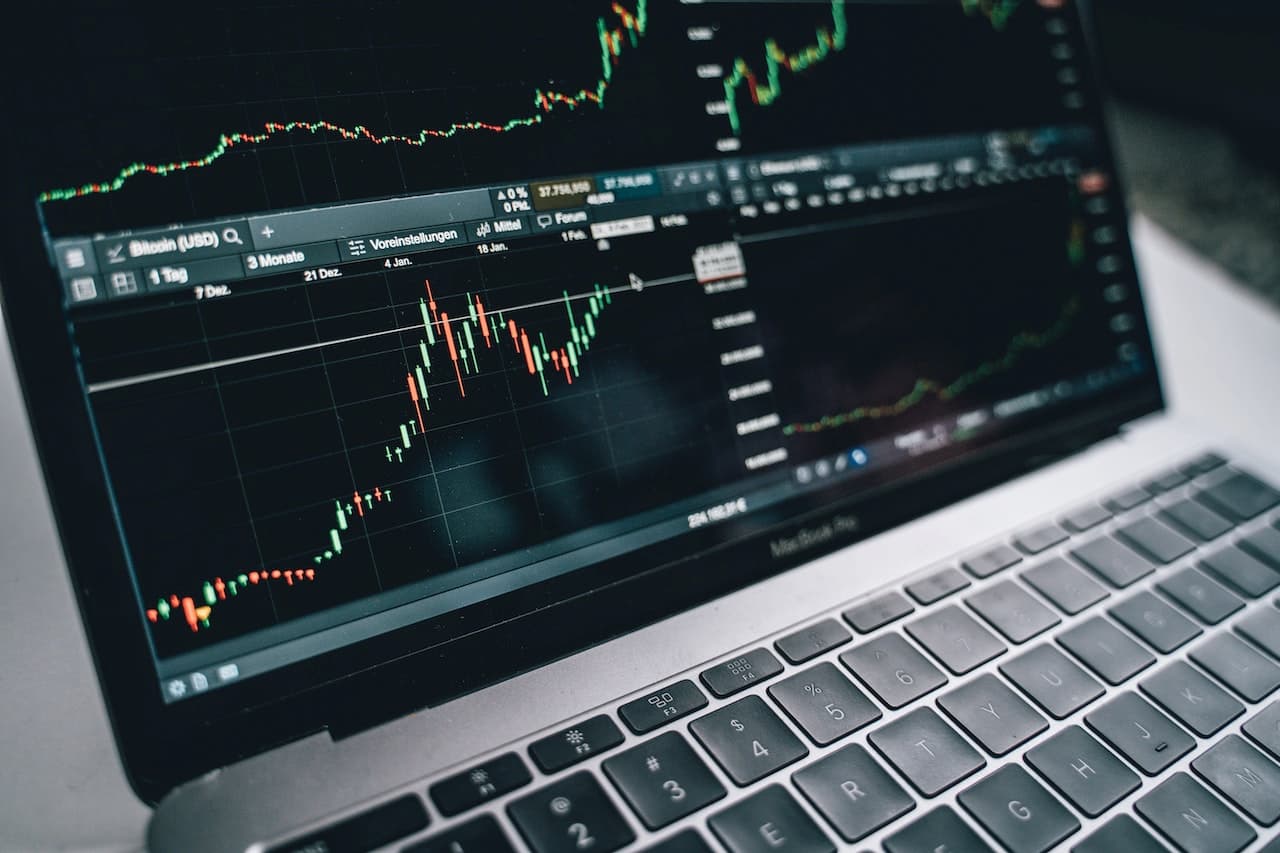Economy
The Art and Science of Day Trading: An In-Depth Guide

Day trading is an exciting, fast-paced way of participating in financial markets. Unlike long-term investing, which focuses on gradual growth over years or decades, day trading involves buying and selling securities within the same trading day, sometimes even within minutes. This approach can yield quick profits, but it also comes with significant risks. For anyone interested in day trading, understanding the principles, strategies, and potential pitfalls is essential.
What is Day Trading?
Day trading refers to the practice of buying and selling financial instruments—such as stocks, options, currencies, or futures—within the same trading day. The goal is to capitalize on small price movements in the market. According to Exness Insights guide, day traders often use leverage to increase their exposure to the market, which can amplify both gains and losses.
Essential Tools for Day Traders
Successful day trading requires more than just a good understanding of the markets. It also demands the right tools and resources:
- Trading Platform: A reliable and fast trading platform is crucial. Delays in executing trades can result in missed opportunities or unexpected losses.
- Real-Time Data: Access to up-to-the-minute market data is a must. This includes price quotes, market depth, and news updates.
- Charting Software: Visualizing price movements with charts can help traders identify trends, support, and resistance levels.
- Risk Management Tools: Stop-loss orders, trailing stops, and other risk management tools are vital to protect capital.
- Economic Calendar: Being aware of key economic events and announcements can help traders anticipate market volatility.
Strategies in Day Trading
There are numerous strategies that day traders use to capitalize on short-term price movements. Here are some of the most popular ones.
Scalping
This strategy involves making dozens or even hundreds of trades in a single day, seeking to profit from small price changes. Scalpers hold positions for a very short time—sometimes just seconds—and rely on high volumes to achieve significant gains.
Momentum Trading
Momentum traders look for strong price movements in the market and attempt to ride the momentum to a profitable exit. This strategy often involves following news events or economic reports that can trigger strong buying or selling.
Breakout Trading
Breakout traders focus on identifying key levels of support or resistance. When the price breaks through these levels, it often leads to sharp price movements, providing opportunities for profit.
Reversal Trading
Also known as “mean reversion” trading, this strategy is based on the idea that prices will eventually return to their average level. Traders using this approach look for overbought or oversold conditions and bet on a reversal.
News Trading
Some traders specialize in trading based on news releases and economic data. These events can cause significant volatility, creating opportunities for quick gains.
Managing Risk in Day Trading
The high potential for profit in day trading comes with equally high risk. Effective risk management is crucial to long-term success. Here are some key principles to follow:
- Set a Daily Loss Limit: Decide in advance how much you are willing to lose in a day and stick to it. Once you reach this limit, stop trading for the day to avoid further losses.
- Use Stop-Loss Orders: A stop-loss order automatically sells a security when it reaches a certain price, limiting potential losses.
- Position Sizing: Never put all your capital into a single trade. Diversifying your trades can help spread the risk.
- Avoid Overtrading: Trading too frequently can lead to mistakes and increased transaction costs. Be selective and disciplined in your trading choices.
- Stay Informed: Markets can be unpredictable. Keep an eye on economic indicators, geopolitical events, and market sentiment to help manage your risk.
Psychology of Day Trading
The mental aspect of day trading is often underestimated. Success in day trading requires not just a good strategy but also a strong mindset. Here’s what you need to keep in mind:
- Emotional Control: Markets can be volatile, and prices can change rapidly. It’s important to remain calm and avoid making impulsive decisions based on fear or greed.
- Discipline: Sticking to your trading plan and not deviating from it—even when tempted—is crucial. Discipline helps prevent emotional decisions that can lead to losses.
- Patience: Not every day will offer good trading opportunities. It’s important to wait for the right setup and not force trades.
- Adaptability: Markets are constantly changing. Being able to adapt to new information and changing conditions is key to staying ahead.
- Learning from Mistakes: Every trader will make mistakes. The important thing is to learn from them and improve your strategy over time.
Day trading can be a rewarding endeavor, but it’s not without its challenges. Success requires a deep understanding of the markets, a solid trading plan, and the ability to manage both risk and emotions. With the right tools and a disciplined approach, day trading can offer opportunities for significant profits. However, it’s important to approach it with caution, as the potential for loss is just as great.
Whether you’re just starting or looking to refine your skills, continuous learning and adaptation are key. Markets evolve, and so should your strategies. Stay informed, stay disciplined, and always prioritize risk management.
Economy
Stock Market Gains N2.367trn as All-Share Index Rises 2.06%

By Dipo Olowookere
The Nigerian Exchange (NGX) Limited appreciated by 2.06 per cent on Friday, amid a rush for local equities due to encouraging earnings of companies for 2025.
Business Post reports that the buying pressure was across the key sectors of Customs Street yesterday, with the banking index growing by 2.49 per cent. The energy industry appreciated by 2.05 per cent, the consumer goods counter grew by 0.78 per cent, the insurance space improved by 0.64 per cent, and the industrial goods sector expanded by 0.44 per cent.
At the close of trades, the market capitalisation went up by N2.367 trillion to N117.027 trillion from N114.660 trillion, and the All-Share Index (ASI) gained 3,687.45 points to close at 182,313.08 points compared with the previous day’s 178,625.63 points.
Cornerstone Insurance, Infinity Trust, and Nestle Nigeria appreciated by 10.00 per cent each to sell at N6.38, N9.90 and N2,662.00, respectively, while Okomu Oil rose by 9.99 per cent to N1,327.00, with RT Briscoe up by 9.97 per cent to N17.42.
Conversely, SAHCO depleted by 10.00 per cent to M135.00, Guinness Nigeria lost 9.97 per cent to trade at N103.00, Omatek shrank by 9.39 per cent to N2.99, NPF Microfinance Bank decreased by 6.51 per cent to N5.60, and eTranzact slipped by 6.33 per cent to N10.80.
A total of 53 stocks ended in the green side and 33 stocks finished in the red side, representing a positive market breadth index and strong investor sentiment.
Data showed that 936.4 million shares valued at N52.7 billion were transacted in 50,068 deals on Friday versus the 698.3 million shares worth N28.438 billion traded in 50,886 deals on Thursday, indicating a rise in the trading volume and value by 34.10 per cent, and 85.56 per cent apiece, and a slip in the number of deals by 1.61 per cent.
First Holdco closed the session as the most active equity with 106.3 million units worth N5.1 billion, Zenith Bank transacted 72.6 million units valued at N5.7 billion, United Capital traded 45.4 million units for N963.2 million, GTCO sold 45.0 million units worth N4.9 billion, and Fidelity Bank exchanged 31.4 million units valued at N639.0 million.
Economy
OTC Securities Exchange Extends Positive Run by 0.86%

By Adedapo Adesanya
The NASD Over-the-Counter (OTC) Securities Exchange rose further by 0.86 per cent on Friday, February 13, with the market capitalisation growing by N20.27 billion to N2.378 trillion from the previous session’s N2.357 trillion, and the NASD Unlisted Security Index (NSI) rising by 33.87 points to 3,974.77 points from the 3,940.90 points it ended a day earlier.
The improvement recorded by the bourse yesterday was influenced by six price gainers led by Okitipupa Plc, which went up by N18.00 to sell at N260.00 per share compared with the previous day’s N242.00 per share.
Further, Central Securities Clearing System (CSCS) Plc added N3.39 to quote at N80.47 per unit versus N77.08 per unit, IPWA Plc chalked by 31 Kobo to finish at N3.44 per share versus N3.13 per share, Lagos Building Investment Company (LBIC) Plc gained 31 Kobo to settle at N3.41 per unit versus N3.10 per unit, Afriland Properties Plc appreciated by 31 Kobo to N16.51 per share from N16.20 per share, and Food Concepts Plc increased by 8 Kobo to N3.28 per unit from N3.20 per unit.
There were three price losers, led by MRS Oil Plc, which weakened by N10.00 to close at N170.00 per share compared with Thursday’s price of N200.00 per share, FrieslandCampina Wamco Nigeria Plc lost N2.59 to sell for N65.52 per unit compared with the preceding session’s N68.10 per unit, and Geo-Fluids Plc depreciated by 33 Kobo to N3.30 per share from N3.63 per share.
During the session, the volume of securities transacted by the market participants went up by 9.5 per cent to 9.4 million units from 8.6 million units, the value increased by 1,206.5 per cent to N703.6 million from N53.9 million, and the number of deals grew by 7.1 per cent to 45 deals from 42 deals.
CSCS Plc remained the most traded stock by value (year-to-date) with 27.1 million units exchanged for N1.5 billion, followed by Resourcery Plc with 1.05 billion units traded at N408.6 million, and Geo-Fluids Plc with 29.9 million units valued at N152.6 million.
Resourcery Plc ended the day as the most traded stock by volume (year-to-date) with 1.05 billion units sold for N408.6 million, followed by Geo-Fluids Plc with 29.9 million worth N152.6 million, and CSCS Plc with 27.1 million units sold for N1.5 billion.
Economy
Naira Value Further Dips 0.13% to N1,355/$1

By Adedapo Adesanya
The Naira depreciated further against the United States Dollar by N1.76 or 0.13 per cent on Friday in the Nigerian Autonomous Foreign Exchange Market (NAFEX) to close at N1,33.42/$1, in contrast to the N1,353.66/$1 it was exchanged a day earlier.
However, the Naira appreciated against the Pound Sterling in the same market window yesterday by N5.05 to trade at N1,844.59 versus Thursday’s closing price of N1,849.64/£1, and against the Euro, it improved by 75 Kobo to quote at N1,60/€1 versus the previous day’s N1,608.68/€1.
At the GTBank FX desk, the domestic currency lost N6 on the US Dollar on Friday to settle at N1,365/$1 versus the preceding session’s N1,359/$1, and at the parallel market, it chalked up N10 to trade at N1,430/$1 versus the previous day’s N1,430/$1.
The weakening of the Nigerian currency in the official market happened as the Central Bank of Nigeria (CBN) refrained from intervening in the official window.
The FX supply side was eclipsed by growing demand for foreign payments. Exporters’ inflows, non-bank corporate supply, and other market participants’ contributions had enhanced the FX liquidity level.
Pressure came with the entry of all duly licensed Bureau De Change (BDCs) into the official foreign exchange, although there are indications that the move will help the Naira-US Dollar exchange value, as BDC operators have started approaching their banks to understand the operational modalities and framework for accessing Dollars.
As for the cryptocurrency market, benchmarked tokens improved as US interest rate futures on Friday raised odds of rate cuts by the Federal Reserve after a report that showed inflation rose less than expected in January.
Data showed the Consumer Price Index (CPI) rose 0.2 per cent last month after an unrevised 0.3 per cent gain in December, with Solana (SOL) up by 7.9 per cent to $85.17, and Ethereum (ETH) up by 6.5 per cent to trade at $2,059.78.
Further, Cardano (ADA) added 5.3 per cent to close at $0.2758, Ripple (XRP) jumped 5.1 per cent to $1.42, Bitcoin expanded by 4.8 per cent to $69,357.35, Litecoin (LTC) grew by 4.7 per cent to $55.27, Binance Coin (BNB) jumped 4.0 per cent to $621.88, and Dogecoin (DOGE) increased by 3.8 per cent to $0.0965, while the US Dollar Tether (USDT) and the US Dollar Coin (USDC) remained unchanged at $1.00 each.
-

 Feature/OPED6 years ago
Feature/OPED6 years agoDavos was Different this year
-
Travel/Tourism10 years ago
Lagos Seals Western Lodge Hotel In Ikorodu
-

 Showbiz3 years ago
Showbiz3 years agoEstranged Lover Releases Videos of Empress Njamah Bathing
-

 Banking8 years ago
Banking8 years agoSort Codes of GTBank Branches in Nigeria
-

 Economy3 years ago
Economy3 years agoSubsidy Removal: CNG at N130 Per Litre Cheaper Than Petrol—IPMAN
-

 Banking3 years ago
Banking3 years agoSort Codes of UBA Branches in Nigeria
-

 Banking3 years ago
Banking3 years agoFirst Bank Announces Planned Downtime
-

 Sports3 years ago
Sports3 years agoHighest Paid Nigerian Footballer – How Much Do Nigerian Footballers Earn



















